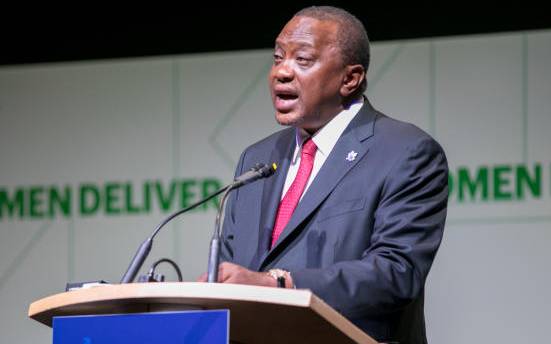×
The Standard e-Paper
Kenya’s Boldest Voice

President Uhuru Kenyatta delivers his Keynote address at a plenary session of the Women Deliver 2019 Conference in Vancouver, Canada. [Standard]
The Government’s 2018 fiscal year is over. In some ways, it was a period of drama: economic growth quickened although analysts doubted, the country’s debt hit a record Sh5.4 trillion and less jobs were created.